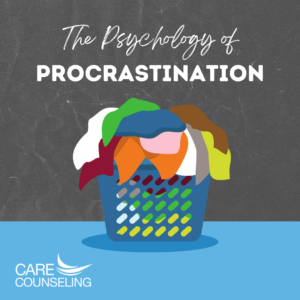The Psychology of Procrastination

Procrastination is a common challenge that affects individuals from all walks of life. Despite our best intentions, we often find ourselves putting off tasks and responsibilities, leading to stress and missed opportunities. In this blog post, we will delve into the psychology of procrastination, exploring its underlying causes and shedding light on effective strategies to overcome the delay trap.
- The Science Behind Procrastination
Procrastination is rooted in behavioral psychology, where instant gratification and the avoidance of discomfort play significant roles. When faced with a task that seems overwhelming or unpleasant, our brains may seek short-term rewards or distractions to cope with anxiety or discomfort.
- Fear of Failure and Perfectionism
One of the primary drivers of procrastination is the fear of failure. When we fear that we might not meet our own or others’ expectations, we may subconsciously delay starting the task to avoid potential disappointment. Similarly, perfectionism can lead to procrastination, as the fear of not achieving perfection can hinder us from even beginning the task.
- Lack of Clear Goals and Prioritization
Without clear goals and priorities, it becomes challenging to focus on tasks and allocate time effectively. Procrastination often thrives in the absence of a structured plan or a sense of direction. Learning to set achievable goals and prioritize tasks can help combat procrastination.
- Instant Gratification and Distractions
The allure of instant gratification, such as scrolling through social media or binge-watching TV shows, can be tempting when facing a challenging task. The availability of distractions in the digital age can exacerbate procrastination tendencies, making it crucial to cultivate self-discipline.
- The Procrastination Cycle
Procrastination can form a destructive cycle, where initial avoidance leads to increased stress and pressure as deadlines loom closer. The resulting stress can further fuel the desire to escape the task, perpetuating the procrastination loop.
- Overcoming Procrastination: Strategies for Success
- Break Tasks into Smaller Steps: Dividing tasks into smaller, manageable steps can make them feel less overwhelming, boosting motivation to start and continue working on them.
- Set Specific Deadlines: Establishing clear deadlines for each task encourages accountability and helps track progress.
- Practice the Two-Minute Rule: Commit to spending just two minutes on a task; often, once you start, it becomes easier to continue.
- Create a Distraction-Free Environment: Minimize distractions during work periods to maintain focus and productivity.
- Reward Yourself: Offer yourself small rewards after completing tasks to reinforce positive behavior.
- Cultivate Self-Compassion: Acknowledge that setbacks and delays are normal, and treat yourself with kindness when you experience them.
- Challenge Negative Thoughts: Reframe negative thoughts about tasks and replace them with positive affirmations.
- Seek Support: Share your goals and progress with a friend or family member who can provide encouragement and accountability.
Understanding the psychology of procrastination empowers us to take proactive steps to overcome the delay trap. By recognizing the fear of failure, perfectionism, lack of clear goals, and the lure of distractions, we can implement effective strategies to increase productivity and regain control of our time. Breaking the procrastination cycle through small, consistent efforts and self-compassion can lead to a more fulfilling and accomplished life. With determination and perseverance, we can conquer procrastination and unlock our true potential.



























